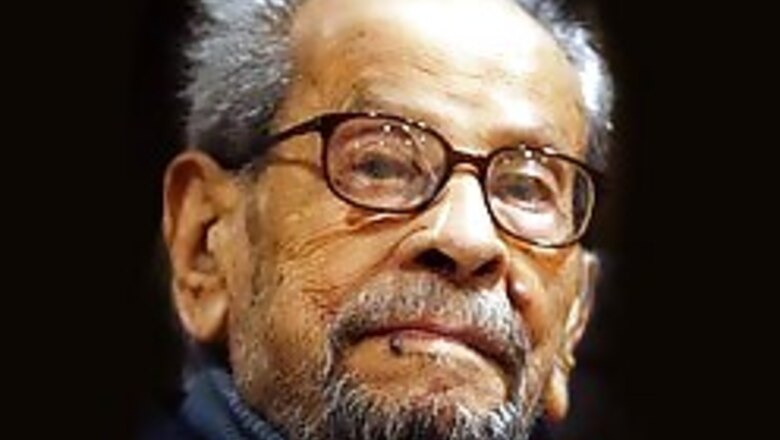
views
Cairo: Naguib Mahfouz, who became the first Arab writer to win the Nobel Prize in Literature for his novels depicting Egyptian life in his beloved corner of ancient Cairo, died Wednesday, his doctor said. He was 94.
Mahfouz, who was accused of blasphemy by an Islamic militant and survived a stabbing attack 12 years ago, was admitted to the hospital last month after falling in his home and injuring his head. He died Wednesday morning after a sharp decline, said Dr Hossam Mowafi, head of a medical team supervising his treatment at the Police Hospital.
"His wife last night was whispering on his ears and he was smiling and nodding," Mowafi said.
The Nobel Prize, awarded in 1988, brought to acclaim a man who had already established himself as one of West Asia’s finest and most beloved writers and a strong voice for moderation and religious tolerance. But fame had its perils.
In 1994, an attacker inspired by a militant cleric's ruling that a Mahfouz novel written decades before was blasphemous stabbed the then-82-year-old author as he left his Cairo home.
Mahfouz survived, but the attack damaged nerves leading to his right arm, seriously impairing his ability to write. A man who had once worked for hours at a time—writing in longhand—found it a struggle to ''form legible words running in more or less straight lines,'' he wrote in the aftermath.
Still, Mahfouz maintained a busy schedule well into his 90s. In his final years, he would go out six nights a week to meet friends at Cairo's literary watering holes, trading jokes, ideas for stories and news of the day.
He continued to work, producing short stories, sometimes only a few paragraphs long, dictating each day to a friend who would also read him the newspapers. His final published major work came in 2005—a collection of stories about the afterlife entitled The Seventh Heaven.
PAGE_BREAK
''I wrote The Seventh Heaven because I want to believe something good will happen to me after death,'' the wispy-bearded writer said with a grin during a small gathering for his 94th birthday in December 2005. ''Spirituality for me is of high importance and continuously provides inspiration for me.''
Across the span of 50 novels, five plays and scores of short stories and essays, Mahfouz depicted with startling realism the Egyptian “Everyman” balancing between tradition and the modern world. The scene of the novels often did not stretch beyond a few familiar blocks of Islamic Cairo, the 1,000-year-old quarter of the capital where Mahfouz was born.


















Comments
0 comment